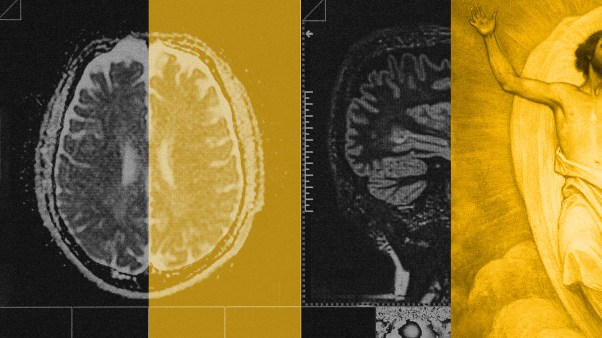In the film Gladiator, there’s a scene where the Roman senator Gracchus visits the protagonist Maximus, a once-revered general who has been betrayed and enslaved. Rome is crumbling, and corruption rots the empire from within. The old senator, desperate for hope and someone to trust amid the chaos, looks this broken gladiator in the eye and says, “Marcus Aurelius trusted you. His daughter trusts you. I will trust you.” It’s a moment of clarity. He doesn’t pledge allegiance to an institution but to a person whose character has endured.
I think about that moment when I consider what you’re facing right now. Trust has become as rare as gold in the marketplace of American faith. And you—whether you asked for it or not—have inherited the wreckage.
The numbers don’t lie. For the fourth straight year, trust in the clergy has dropped to 32 percent. For the first time in Gallup’s history, fewer than a third of Americans believe pastors operate with high ethical standards. What a pastor from previous generations could assume (that his word carried moral weight simply because of his clerical collar), you must now earn in every conversation.
This isn’t a glitch in communications that can be fixed with better branding. It is a spiritual crisis that strikes at the heart of shepherding souls. In recent years, the percentage of pastors who feel excellent respect from their communities has plummeted from 22% to 7%. Something is breaking: the trust that allows broken people to place their deepest wounds in your hands.
When trust becomes sacred currency
Henry Cloud once observed, “Leadership is not taken, it is given. People give leadership to those that they trust.” Your ordination certificate doesn’t grant you spiritual authority. Your seminary degree doesn’t automatically open hearts. Trust is the real currency that decides whether people will open their hearts to you.
But here’s where it gets complicated. Your congregants have watched too many pastors turn their pain into sermon illustrations or confessions into social capital. They’ve learned to be suspicious of pastoral motives—and honestly, can you blame them?
The very authority you need to shepherd effectively can become the barrier to authentic relationships. Influence must be wielded in ways that liberate rather than bind, that create safety rather than fear. It’s like a scalpel—meant for healing, but in the wrong hands, it can cut deep and leave lasting damage.
The Jesus blueprint for trust
When you study Jesus through the lens of building trust, patterns emerge that may well reframe how you think about ministry. Consider the woman caught in adultery (Jn 8:3–11), dragged before Jesus by religious leaders who weaponized her shame for their political theater.
Jesus did something that shocked everyone present: He protected her dignity while addressing her sin. He demonstrated, in ways visible to the crowd, “I mean you no harm” and “I seek your greatest good.” No exploitation. No manipulation. No using her brokenness to enhance his reputation.
Again and again, Jesus created safety for the vulnerable. When children approached and his disciples tried to turn them away, Jesus welcomed them (Mark 10:13–16). When sinners and outcasts sought him out, he never exploited their desperation or commodified their stories. Seeking Jesus never resulted in shame, manipulation, or betrayal.
This stands in sharp contrast to what’s driving our current crisis. When people experience spiritual authority as a cover for abuse, financial exploitation, or political manipulation, trusting any pastor becomes psychologically dangerous. This is a damaged landscape every pastor today inherits—wariness that previous generations never faced. You’re paying for sins you didn’t commit, but if we are to have hope in discipling the next generation, rebuilding and maintaining trust must become a priority.
Learning from Joseph
Joseph’s story offers a master class in earning trust under impossible circumstances. Elevated to second-in-command of Egypt (a foreign land with unfamiliar customs, representing a God the people don’t worship), he faced the ultimate leadership challenge.
Joseph proved himself competent. But competence alone would not have sustained him. He consistently proved that his power served the welfare of others, not his own advancement. When famine struck, he used the crisis to preserve life, not consolidate control.
The ultimate test came when his brothers (the very ones who had betrayed him) stood before him in need. Joseph had every justification for revenge. Instead, he chose restoration: “You intended to harm me, but God intended it for good to accomplish what is now being done, the saving of many lives” (Genesis 50:20).
Joseph understood something crucial: Trust isn’t built when everything runs smoothly. It is forged in those moments when you have the power to harm and deliberately choose to heal instead.
Build safety that restores trust
The mechanics of building trust are surprisingly mundane. You establish office hours and honor them. You end counseling sessions when you promised, not when the conversation becomes compelling. You return calls within the time frame you committed to, not when it’s convenient.
These aren’t restrictions on ministry. They’re the infrastructure that makes sustainable ministry possible. They signal to people that you’re trustworthy with small things, which gives them confidence to trust you with larger ones.
When problems arise—and they will—you address them quickly and directly. Financial irregularities. Staff tensions. Behavioral issues that harm the community. The cover-up invariably causes more damage than the original problem. Your congregation is watching how you handle difficult conversations, and these moments become small deposits in the trust account.
There’s a particular kind of vulnerability that strengthens authority rather than erodes it. This isn’t turning the pulpit into your therapy session. It’s letting people see that the gospel you preach is actively transforming you too. You share how a particular text challenged your pride. You acknowledge when a sermon felt inadequate. You openly own it when you’ve had to seek forgiveness from your spouse.
The goal isn’t perfection. Perfection actually works against trust. The goal is authenticity within appropriate boundaries. In a cultural climate where examples of broken trust abound, people need evidence that you’re human enough to fail and mature enough to take responsibility.
Remember that you’re starting from a deficit. Skepticism is the default. Every action will be scrutinized. Every failure, magnified. In this context, how you respond to mistakes becomes crucial. When you get it wrong—and you will—your response becomes an illustrative sermon. It’s your chance to demonstrate the very grace you preach. Can you receive correction without defensiveness? Can you apologize without qualifying? Can you change course without losing face?
What Hangs in the Balance
This is far more than a question of reputation or your church’s institutional health. When trust in spiritual leadership erodes, people lose access to the kind of wisdom, comfort, and moral guidance that has sustained communities through crisis for generations.
More than half of churches saw fewer than 10 people become Christians last year. Multiple factors contribute to this decline, but the trust crisis plays a significant role. When people can’t trust the messenger, they struggle to receive the message, regardless of its truth.
When authenticity conquers cynicism
In Gladiator’s final moments, Maximus lies dying in the arena, having defeated the tyrant who destroyed his family and corrupted the empire. Then something remarkable happens. The crowd, the senators, even the Praetorian Guard stand in recognition: They’ve witnessed something rare—a person who used power not for personal gain but for others’ welfare, even at the cost of his own life
That’s the picture to hold onto now: a leader whose character is so evident, whose care for others is so consistent, whose use of spiritual authority serves flourishing rather than control. And that even skeptics may recognize authenticity when they see it.
You have the opportunity now to create something beautiful: communities where people can bring their full selves—their doubts, fears, failures, hopes—and find grace rather than judgment, genuine care rather than manipulation, protection rather than exploitation.
Trust in pastoral leadership won’t rebuild through better marketing or well-polished sermons. It happens through the slow and patient work of proving, one relationship at a time, that there are still shepherds who care more about the welfare of the sheep than their own reputation.
The question isn’t whether the crisis is real. It is. The question is whether you’ll be the kind of leader future generations point to as an example of what shepherding should look like. Your answer will be written, not in words, but in the countless small decisions that show whether power serves love—or love serves power.
In that choice lies the future of pastoral ministry and the hope of a watching world. The weight of trust may feel unbearable some days. But you’re not carrying it alone.
Every time you choose integrity over ease, transparency over spin, and service over self you’re walking in the footsteps of shepherds who refused to let cynicism write the ending. You’re walking in the way of Jesus.
The world is watching. They’re aching for something true.
By the grace of God—give it to them.
Thomas Anderson is the pastor of disciple making at Grace Community Church in Fulton, Maryland.









